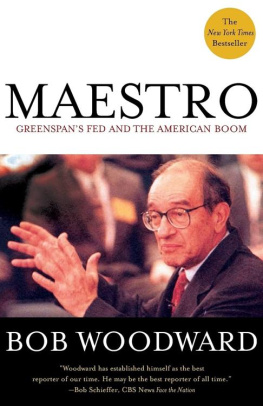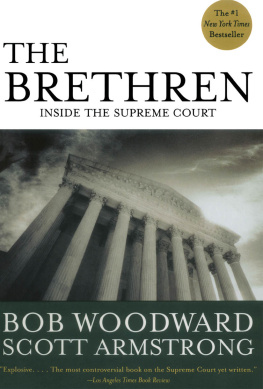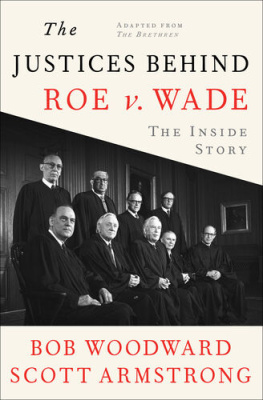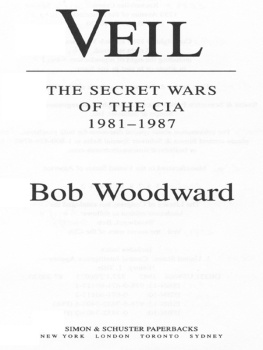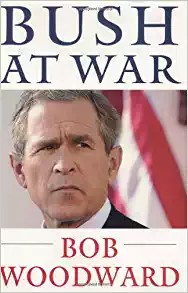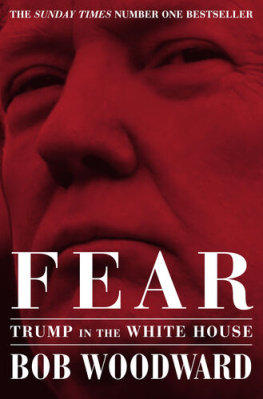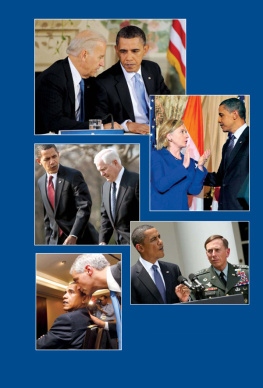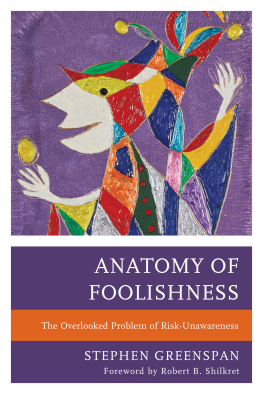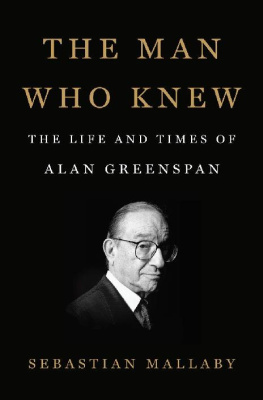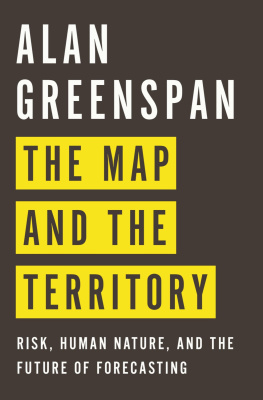All rights reserved, including the right of reproduction in whole or in part in any form.
SIMON & SCHUSTER and colophon are registered trademarks of Simon & Schuster, Inc.
Jeff Himmelman, a Phi Beta Kappa graduate of Yale University in 1998, was my full-time collaborator at every step of this bookreporting, writing and editing. He was able to develop an extensive understanding of the Federal Reserve, the American economy and Alan Greenspan in less than a year. A truly remarkable man of unusual maturity, brainpower and charm, Jeff is an original thinker who retains a deep sense of idealism. He is also a natural, graceful writer who improved each section and chapter and expanded my thinking each day. Having to endure months in the so-called factory on the third floor of the home I share with my wife, Elsa, and young daughter, Jeff never lost his good cheer. He was great company each day, night or working weekend. He has the energy and staying power of a team of reporters and editors. Pressure only made him work harder and more imaginatively. His standards of accuracy and fairness are the absolute highest. One of the very best of his generation, he took the time and care to learn from the people we were studying. He always worked with tact, generosity and forbearance. No one ever did more or better in the crucible of book writing. This book would never have been completed without him, and it is his as much as mine. I consider him a friend for life.
To great teaching editors: Benjamin C. Bradlee, Alice Mayhew,Roger B. Farquhar, Howard Simons, Harry M. Rosenfeld,Barry Sussman, Leonard Downie Jr., Robert G. Kaiser, Steve Coll,Steve Luxenberg, David Maraniss, Carl Bernstein,William F. Powers Jr., Jim Wooten, Rick Atkinson, Michael Getler,Richard Harwood, Karen DeYoung, Bill Hamilton, Jane Amsterdam,Meg Greenfield, Laurence Stern, Doug Feaver and Bill Brady.
CONTENTS
PREFACE
ON JANUARY 20, 2001, a new president takes the oath of office. He assumes the presidency in a Greenspan era. Just as the 1992 presidential election was about fixing the economy and cutting the federal budget deficit, the 2000 election was about how to use a projected surplus of at least several trillion dollars. The expectations, even the very definition, of the new administrationprotecting Social Security, expanding health care, improving education, revitalizing the military and cutting taxeswill be contingent on that surplus. Whether it materializes is yet to be seen, but the inherited economic conditions for everyonefrom the next president to any citizenare in many respects the Greenspan dividend.
Greenspan is slated to remain chairman of the Federal Reserve until 2004. Not only is he a major figure in the worlds economic past, he is central to its future. He has been frank enough to stand before the new and amazing economic circumstances that he helped create and in the end declare them a mystery. It is impossible to account fully for the continuing high growth, record employment, low inflation and high stock market. This is my effort, only a beginning, to write the story of how and why we got there.
PROLOGUE
LOOK, THIS is a good time to have a meeting with the president. Why dont you come over?
That was the message James A. Baker III, White House chief of staff and Ronald Reagans main political strategist, sent in the summer of 1984 to Paul Volcker, chairman of the Federal Reserve.
Baker arranged the visit in the East Wing residence, often the setting for delicate matters away from the official hubbub of the West Wing and the eyes of others. Volcker, a somewhat theatrical figure who towered at six feet seven inches, was hard to hide. In his five years as Fed chairman he had become the public face of a grueling war against runaway inflation.
Volckers tough medicine of jacking up interest rates to an unprecedented 19 percent to cool the American economy had triggered recession and thrown millions out of work, making him a demon to many on Main Street. But now inflation was down and the Fed had achieved a semblance of stability in prices, making him a hero elsewhere, especially on Wall Street.
The chairman met every six months or so with the president. It wasnt unusual for him to hear carefully worded suggestions for lower interest rates to help the economy grow.
Volcker found only Reagan and Baker in the downstairs library in the East Wing.
Volcker and Baker had a cordial personal relationship. Both had gone to Princeton in the same clubby eraVolcker class of 1949 (summa cum laude), Baker class of 1952and their alma mater was a subject of occasional, even fond, conversation between them. On a professional level, particularly on the matter of interest rates, their relationship was tense.
Volcker had first been appointed chairman by Democratic President Jimmy Carter in 1979. When the chairmans four-year term expired in 1983, Reagan, who saw virtue in Volckers anti-inflation campaign, had reappointed him to a second term. In the aftermath of recession, with a jittery Wall Street, it was considered too risky to dump him.
Baker thought that Reagan should have his own Fed chairmansomeone from his party, someone in tune with his values. As Baker frequently remarked, Volcker was a known Democrat, as if the Fed chairman were a subversive. Baker had no illusions that a Fed chairman could be ordered about or subjected to political control. But he found Volcker needlessly aloof and prickly, unreceptive to the sorts of consensus solutions Baker preferred.
After polite preliminaries, Baker began by mentioning the fall election. Reagan was seeking his second term, and Baker was in charge of the campaign.
They didnt want any tightening, Baker said, referring to interest rate increases. He sounded tough and spoke of the upcoming election with some pride. The theme was Morning in America, and Reagan was projecting the image of the caring, optimistic father. Higher interest rates would be off message.
Volcker was a little stunned that Baker would talk about interest rates in such an overt political context. Baker could as easily have signaled their desires in a subtle, less offensive way. The chairman stiffened. The setting, the bald language and the swagger made it certainly inappropriate, even improper. Baker was doing all of the talking. The president wasnt saying a damn thing. Nothing. Blank. Not nodding, not un-nodding, Volcker noticed grimly. How brilliant. Reagan never said anything, his deniability preserved: I never pressured Volcker. But the presidents presence, sitting there calmlydetached or engaged, no one would ever know for sure, including Bakergave Bakers words all the weight in the world.
Privately, Volcker was a bit worried about the economy. He didnt think there would be another recession very soon, but growth was slowing and the outlook wasnt good. His next action at the Fed was probably going to be exactly what Baker and Reagan wanted him to do, to ease up and lower interest rates. But he didnt tell them that because he didnt trust them. If he said anything, they would leak it to the press. Interest rates are going down, theyd say. Or worse, the Federal Reserve caved to their pressure, undermining Volckers credibility.

